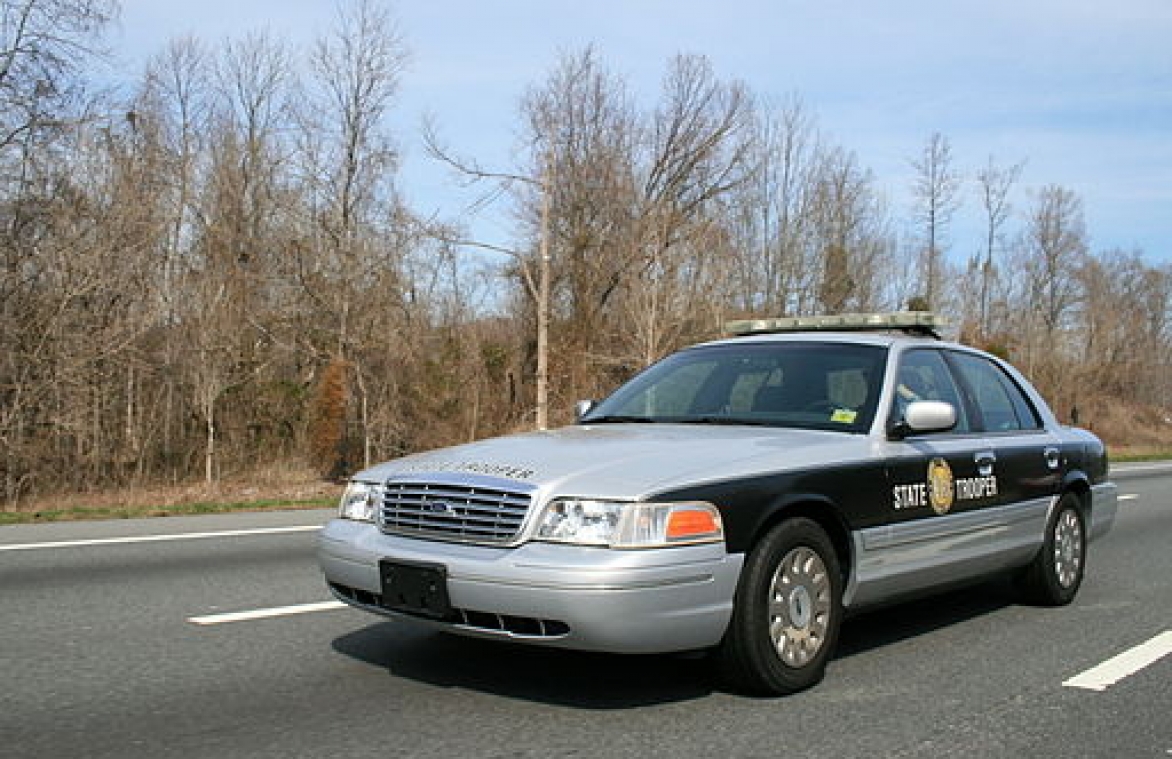A North Carolina state trooper had reasonable suspicion to stop an SUV because a passenger flipped the officer the bird, a state appeals court has ruled. Even though the act of flipping off an officer is considered expressive conduct protected by the First Amendment, the state appeals court still found reasonable suspicion to justify the stop in State v. Ellis.
The trooper was assisting a stalled motorist on a U.S. highway in Albemarle County, when he noticed a passenger with his arm outstretched from the window of an SUV. The person was waving his hand up and down and flipping the bird.
The trooper pursued the SUV and pulled it over. The trooper asked the driver and passenger for their identifications. The driver eventually gave her license but her husband, passenger Shawn Patrick Ellis, refused to provide his identification.
The officer then cited him for obstructing a police officer during a stop. Ellis filed a motion to suppress, contending that the traffic stop was invalid because it was predicated upon Ellis’ protected expressive conduct of flipping the bird. A trial judge orally denied the motion and Ellis then plead guilty but reserved the right to appeal.
Middle finger gesture enough to alert officer to impending breach of peace, court says
On appeal, the Court of Appeals of North Carolina affirmed the trial judge in its ruling on Aug. 6, 2019 and ruled against Ellis. The appeals court recognized that other courts had held that the act of flipping off an officer is protected expression. However, the appeals court determined that “the issue is whether the trooper had reasonable suspicion that criminal activity was afoot.”
The appeals court reasoned: “[Ellis’] actions, both his waving and middle finger taken together, aimed at an unknown target could alert an objective officer to an impending breach of the peace.”
The appeals court then reasoned that, because the initial stop was valid, the trooper was justified in detaining Ellis based on his refusal to provide identification.
Dissenting judge notes no other person saw obscene middle finger gesture
Judge Arrowood dissented, reasoning that there was no objective justification for the trooper to pull the vehicle over in the first place. “There is also no testimony or indication that anyone other than the trooper, the person to whom the obscene gesture was directed, saw it,” he wrote.
This is an interesting ruling that conflicts with decisions from several other courts. Several court decisions have established that officers cannot pull an individual over simply for flipping them the bird.
It will be interesting to see what happens if Ellis appeals the case to the North Carolina Supreme Court.
David L. Hudson Jr. is a First Amendment Fellow at the Freedom Forum Institute, and a law professor at Belmont University who publishes widely on First Amendment topics. He is the author of a 12-lecture audio course on the First Amendment titled “Freedom of Speech: Understanding the First Amendment” (Now You Know Media, 2018). He also is the author of many First Amendment books, including “The First Amendment: Freedom of Speech” (Thomson Reuters, 2012) and “Freedom of Speech: Documents Decoded” (ABC-CLIO, 2017).

